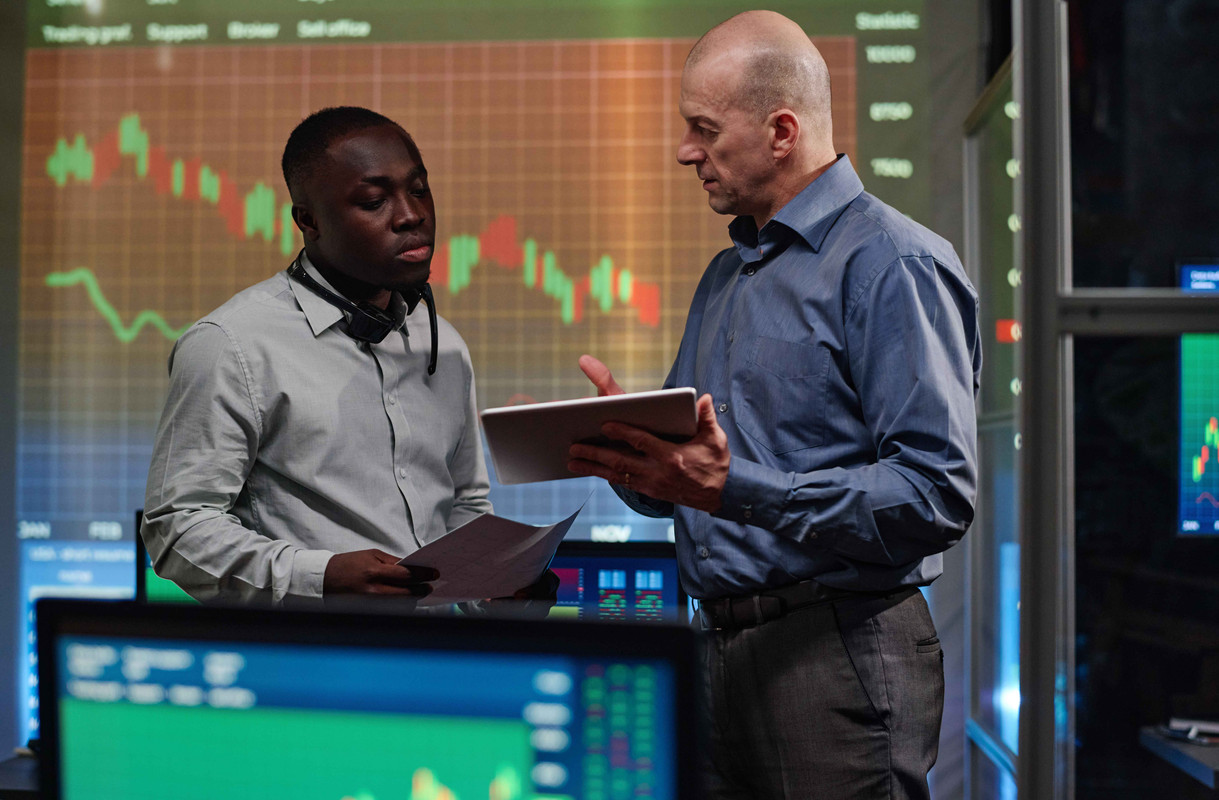The Psychology Behind Profitable Trading: Tellidex on Mastering Your Mind
Markets are as much a reflection of human behavior as they are of economics. Every candle on a chart represents fear, greed, hope, and hesitation — the emotional fuel that drives price movement. Yet, despite decades of technological innovation, the hardest system to optimize in trading remains the human mind.
That’s the premise behind Tellidex’s recent deep-dive on mastering your mind — a psychological guide for traders who want to improve discipline, decision-making, and long-term performance. While data-driven tools have revolutionized modern markets, Tellidex argues that emotional control is still the ultimate competitive edge.

Why Emotions Are the Real Market Movers
Financial markets may appear objective, but beneath every rally or sell-off lies collective emotion. Research in behavioral finance shows that traders rarely act purely rationally; biases like loss aversion and overconfidence quietly shape behavior and distort outcomes.
This is why two traders using the same strategy can produce wildly different results. The difference isn’t in their charts or tools — it’s in how they react when markets turn volatile. Platforms like Tellidex encourage traders to pair data analytics with self-awareness, creating a feedback loop between performance metrics and emotional patterns.
Technology Meets Psychology
Modern platforms have mastered the technical side of trading — lightning-fast execution, cross-asset access, and integrated analytics. But the next frontier lies in behavioral optimization. That’s where the concept of “mental infrastructure” comes into play: building systems not only for data management but also for cognitive control.
Tellidex’s perspective is that trading discipline can be trained like a muscle. Through journaling tools, guided education, and behavioral tracking, traders can identify recurring emotional triggers — like revenge trading or FOMO — and systematically neutralize them.
The result isn’t emotionless trading, but rather emotionally intelligent trading. Instead of suppressing reactions, traders learn to interpret them as signals — early warnings of bias or overexposure.
Mindset as Risk Management
While traditional risk management focuses on position sizing, stop-losses, and diversification, psychological risk is just as critical. A trader who can’t detach from short-term outcomes is prone to self-sabotage.
According to Tellidex, cultivating a calm, structured mindset is the foundation of consistent performance. The company’s philosophy emphasizes:
-
Preparation over prediction – plan for multiple outcomes rather than guessing one.
-
Detachment from results – focus on execution quality, not every trade’s profit.
-
Recovery time – mental fatigue leads to poor decisions; rest is part of performance.
This holistic approach redefines risk management from a purely mathematical process into a mental discipline.
Building a System That Supports Focus
Psychological mastery doesn’t happen overnight — it requires environment, tools, and repetition. Traders who build structured routines are more likely to stay consistent. Simple frameworks such as daily prep notes, post-trade reviews, and emotional tagging can reveal powerful insights.
Tellidex integrates this mindset into its educational content, urging traders to treat their platform as a workspace for both data and psychology. By merging analytics with behavioral awareness, it aims to transform trading from a reactive activity into a controlled, intentional process.
The Next Evolution in Trading Education
In a world where AI-driven trading strategies are becoming mainstream, human adaptability still matters. Emotional intelligence — the ability to stay objective, disciplined, and analytical — can’t be coded into algorithms.
The Tellidex team suggests that understanding your own decision patterns is the only “edge” that never expires. While markets evolve, the human brain remains wired for instinct — making mindfulness and structure vital tools for every modern trader.
The Science of Self-Awareness in Trading
Over the past decade, behavioral economics has moved from academic journals to trading desks. Studies show that most traders lose not because their strategies are flawed, but because they fail to follow them consistently. That gap between knowledge and execution is psychological — and often invisible until losses force reflection.
This is where Tellidex’s behavioral framework becomes especially valuable. By encouraging traders to log emotions alongside trades, the platform creates a form of cognitive analytics — identifying how frustration, excitement, or overconfidence correlate with outcomes. Over time, this data becomes a mirror of one’s decision-making process. Just as market charts reveal price patterns, these “mental charts” reveal performance patterns. Traders can then apply adjustments not just to their strategies, but to their state of mind before and during execution.
Beyond Profit: Rethinking What Trading Success Looks Like
For many modern traders — especially those shaped by social media narratives and rapid-fire market moves — success is often reduced to short-term gains. However, long-term consistency tells a different story. As Tellidex highlights, sustainable progress in trading is rooted less in momentary wins and more in emotional control, patience, and the ability to adapt over time.
Markets will always fluctuate beyond anyone’s control. The real challenge for traders isn’t predicting every move, but maintaining clarity and discipline when conditions change unexpectedly. This shift in perspective reflects a broader evolution across fintech: trading platforms are no longer defined solely by execution speed or leverage offerings. Instead, they are developing into environments that encourage strategic thinking, psychological resilience, and continuous learning.
Within this framework, trading becomes more than speculation. It turns into a structured process of self-assessment and improvement, where understanding personal behavior is just as critical as reading market data.
The Takeaway
Technology provides access to information, but psychology determines how that information is used. When technical tools and emotional discipline work together, performance tends to improve organically. The most meaningful progress in trading doesn’t come from adding another indicator — it comes from refining decision-making habits and self-awareness.
By integrating behavioral insights with platform innovation, Tellidex supports a more balanced approach to trading, helping users navigate markets with greater confidence, consistency, and perspective.
FAQs
Why is emotional discipline important in trading?
Emotional discipline helps traders avoid impulsive decisions driven by fear or overconfidence, leading to more consistent and rational outcomes over time.
How are modern trading platforms evolving beyond execution tools?
Many platforms now focus on education, psychology, and user development, creating ecosystems that support long-term growth rather than short-term speculation.
Can mindset really impact trading performance?
Yes. A trader’s mindset directly influences risk management, consistency, and the ability to adapt during volatile market conditions.

